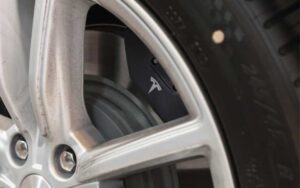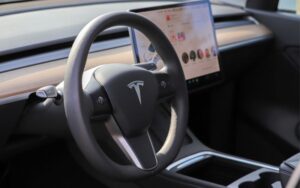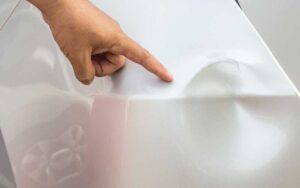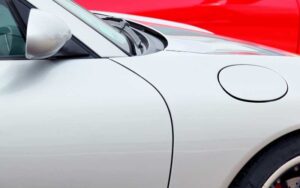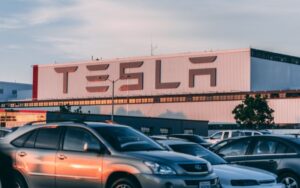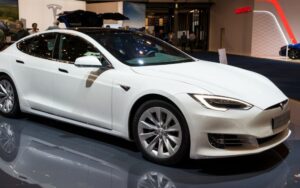Tesla Battery Vs. Others: Fact or Hype?
Last updated on September 21st, 2023 at 09:54 am
You can’t make a list of electric vehicles without mentioning Tesla. It is a popular electric automobile with a name in the vehicle industry.
And one factor that contributes to this electric vehicle’s popularity in the industry is its battery.
Today, Tesla’s battery design system, cars, and solar panels have the highest Technological advancement, making Tesla one of the highest producers of electric cars.
However, what makes Tesla batteries better than others?
Tesla batteries have a greater energy density, better performance, and higher durability. Tesla batteries last long because of the temperature management system. This system cools the battery in hot weather conditions and heats it during cold weather for optimal battery life. Tesla’s battery advancement makes it superior to its competitors.
This article highlights everything you need to know about the Tesla battery, including what makes it superior and why you can’t use it with other EVs.
Tesla Battery Vs. Others: Are Tesla Batteries Better?
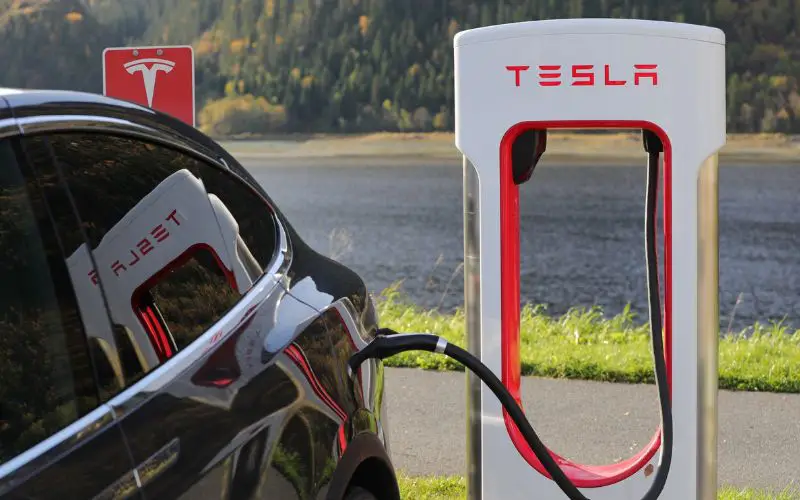
Tesla is one of the Electric vehicles with one of the best batteries in the vehicle industry.
Their high energy density, production methods, and other factors contribute to their betterment.
The table below shows the difference between Tesla batteries and other batteries.
| Tesla Battery | Other Battery |
|---|---|
| Tesla batteries have a higher density | The energy density depends on the battery chemistry. |
| Tesla batteries are durable | The durability of the battery depends on the chemical composition. |
| Tesla uses a lithium ion-based battery, making it small and enhancing its performance. | Other batteries consist of bigger cells, adding to the weight of the battery. |
What Makes Tesla Batteries Superior to Others?
There are various reasons why Tesla batteries are superior to their pairs. Here are some of them:
#1. Bigger Batteries Capacity
Tesla’s battery capacity is relatively larger than the ones found in other electric cars. Tesla Model 3’s smallest battery capacity ranges from 50 to 80 kWh.
The Model X has retained a battery capacity of 100 kWh over the years.
When you compare their powers with the industry standard ranging from 16 kWh to about 60 kWh, it becomes evident that Teslas are remarkably above the industry average in battery size.
Many modern Electric Vehicles have big batteries, which results in extra work, canceling the extra power.
Tesla, however, has found a way to be more efficient by increasing the battery capacity without adding too much weight.
#2. Tesla Battery Has Higher Energy Density
Tesla batteries are top tier with their massive kilowatt-hours. However, other EVs are catching up to them. A cell with more density means more energy than another cell of equal volume.
Pouch cell batteries are useful due to their small sizes and lower densities. Therefore, Tesla uses cylindrical cell batteries in its cars.
Although heavy, their high energy densities make up for their weight. Therefore, you don’t need a lot of cells to produce the power needed if you use it.
This battery cell has about 50℅ more energy density than pouch cells.
Therefore, Tesla does not need excessive stacks to get the capacity required, which enables them to become less weighty.
#3. Batteries Are Inexpensive
Tesla batteries are similar to laptop batteries, its lithium-ion based. Since they are common, Tesla buys them at a lower price.
Therefore, Tesla can easily modify their batteries, unlike other EVs that use fairly expensive ones.
Experimentation with such batteries is also cheaper; they can try almost anything. Tesla can also use more cells in the battery to increase its capacity.
#4. Improved Technology
Another important reason the Tesla battery is top tier in the EV industry is its technological improvement.
It is not surprising that they have the best-performing EV batteries.
The main reason their batteries perform well is that they do things differently. Tesla is always searching for ways to develop their products.
Thus, they constantly increase battery production to make them more durable and affordable.
As a result, you can purchase Tesla cars at a cheaper price, which is a problem for competitors.
Tesla also achieves this by upgrading its cell design frequently. Employing larger circular costs less because of their fewer parts and simpler manufacturing.
The design of the cell also permits saved power to travel a shorter distance. Hence, there is a higher range, energy, and power.
Tesla is always working on something new, so it is no surprise their batteries perform better.
Are Tesla Batteries More Environmentally Friendly than Others?
Tesla batteries are more environmentally friendly than traditional internal combustion vehicles and other electric batteries.
There are several factors to back up this claim, such as production methods, materials used in production, and the overall life cycle.
One major aspect of Tesla’s environmental claim is its use of lithium-ion batteries.
While Tesla isn’t the only company using lithium-ion batteries, it has invested heavily in improving its energy, density, longevity, and efficiency.
These improvements contribute to reducing the environmental impact of manufacturing and using batteries.
Also, Tesla came up with various innovations, like its ‘tabless’ battery cells, which could further improve energy density and manufacturing efficiency.
Tesla’s sourcing material for its batteries is also important to environmental impact.
Cobalt, a material used in lithium-ion batteries, has environmental concerns due to its mining practices.
Tesla has been working to reduce its dependence on cobalt in its batteries using nickel and other materials in replacement.
This change decreases the negative, social, and environmental impacts of cobalt mining.
Also, Tesla Gigafactories manufactures battery cells and aims to produce the materials required for those cells, like lithium hydroxide.
Tesla can ensure better environmental practices and ethical sourcing by controlling more supply chain aspects.
Regarding battery longevity, Tesla vehicles are known for their long life span before significant battery decline occurs.
This longer lifespan reduces the number of times you will replace the battery, reducing the demand for new batteries and the environmental impacts of battery production.
Still, it’s important to note that analyzing the total environmental impact of different types of batteries is a difficult task.
It would be best to consider various factors, such as the source of energy used in production and the carbon footprint of the manufacturing process.
Tesla’s commitment to using sustainable energy is another environmentally friendly effort.
Tesla uses solar power and energy storage systems at its facilities, including its Gigafactories, which lighten the carbon footprint of producing batteries and vehicles.
Can You Use Tesla Batteries on Other EVs?
Although Tesla electric batteries are popular because of their advanced and high energy density, it’s extremely difficult to use their batteries on other EVs.
Tesla designed their battery to work specifically with its electric vehicle model, merging with their charging and management system.
Hence, using Tesla batteries on other EVs without making modifications is very challenging.
Various manufacturers of electric vehicles use different processes such as battery chemistry, cooling procedure, cell configuration, software protocols, and voltage requirements.
Therefore, using a Tesla battery for a non-Tesla vehicle requires adapting these components to ensure proper and safe performance.
Furthermore, Tesla has always been secretive about its battery information, making it difficult for third-party manufacturers to access and create a similar version.
The lack of information makes it extremely difficult to retrofit Tesla batteries into other EVs.
Another factor that makes it difficult to use Tesla batteries for other electric vehicles is the warranty and support.
Once you start swapping batteries between different manufacturers, you won’t have access to any warranty, and it also limits access to technical support, software upgrades, and maintenance.
However, these challenges did not stop some individuals and companies from using Tesla batteries for other EVs.
As a result, there were a lot of modifications to the vehicle system. But none of these was successful.
Is Recycling Tesla Batteries More Environmentally Friendly Compared to Other Battery Brands?
Recycling tesla batteries drive to revive the environment with their sustainable practices. Compared to other battery brands, Tesla focuses on minimizing the environmental impact by implementing efficient battery recycling methods. This not only helps reduce the waste generated but also promotes resource conservation, making Tesla batteries a more environmentally friendly choice.
What Makes BYD Batteries Stand Out Compared to Tesla Batteries?
When comparing byd batteries to Tesla batteries, one key aspect that makes BYD batteries stand out is their exceptional longevity. This longevity is achieved through BYD’s innovative battery management system, which efficiently monitors and optimizes the performance of each individual cell. With this advanced technology, BYD batteries offer a longer lifespan, providing sustainable and reliable energy storage solutions.
What Happens If You Use Another EV Battery on Your Tesla?
Since the Tesla battery is mainly for the vehicle, using another electric vehicle battery for your Tesla can result in safety, technical, and warranty problems.
Here are some potential consequences of using another battery for your Tesla.
#1. Compatibility Problems
Electric batteries are not one size fits all. So, every manufacturer uses a different voltage, cooling system, and cell configuration, making the battery different.
Therefore, using a different battery in your Tesla could lead to compatibility problems, making your vehicle unable to charge and function properly.
#2. Software and Communication
Tesla relies on the communication between the battery system and the software protocols to enable proper charging, energy dispersal, and battery health.
Hence, using another EV battery will disrupt communication, leading to inaccurate battery level readings, restricted access to battery features, and safety dangers.
#3. Safety Concerns
Battery systems are very sensitive and require the correct engineering features to guarantee safety.
Tesla works hand in hand with its battery technology to ensure proper performance.
Integrating a non-Tesla battery into your Tesla will affect its safety features and lead to thermal runaway or other safety dangers.
Therefore, it’s best to use manufacturer-approved parts and follow the maintenance guide for your Tesla.
#4. Regulatory and Legal Violations
Using another manufacturer’s battery in your Tesla could violate the rules and regulations of safety standards set by transportation authorities.
Also, there might be legal implications if your vehicle modifications cause an accident. So it’s best to use Tesla batteries for only Tesla cars.

Hey, I’m Michael Davis, a 35-year-old with a degree and a love for cars and tech. Since I was a kid, cars have been my thing—so much that I even thought they ran on magic beans! Fast forward, and I’ve built Vehicle Army, your one-stop-shop for easy-to-understand car facts.

